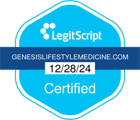
Post-workout nutrition is crucial in helping your body recover and rebuild after intense exercise. Whether you're a dedicated athlete or simply someone who enjoys regular physical activity, what you eat after your workout can significantly impact your muscle recovery and overall fitness. This article from Genesis Lifestyle Medicine explores 10 muscle recovery foods you should consider adding to your post-workout routine to optimize recovery and achieve your fitness goals.
1. Lean Protein Sources
Protein is the cornerstone of muscle recovery, and consuming an adequate amount of it after your workout is essential. Lean protein sources like chicken, turkey, fish, lean beef, tofu, and legumes are excellent choices. These foods provide the amino acids your body needs to repair and build muscle tissue, aiding in the recovery process. Aim for 20-30 grams of protein in your post-workout meal to maximize muscle recovery and growth.
2. Greek Yogurt
Greek yogurt is a protein-rich dairy product containing essential amino acids, probiotics, and carbohydrates. The combination of protein and carbohydrates in Greek yogurt can help replenish energy stores and promote muscle repair. The probiotics in yogurt can also support digestion and gut health, which is crucial for nutrient absorption and overall well-being.

3. Quinoa
Quinoa is a versatile whole grain rich in protein and complex carbohydrates. It provides a balanced source of amino acids, making it an excellent choice for post-workout recovery. Quinoa is also packed with vitamins, minerals, and dietary fiber, which contribute to overall health. Incorporating quinoa into your post-workout meals can help you feel more energized.
4. Eggs
Eggs are a nutritional powerhouse, packed with high-quality protein, essential amino acids, and various vitamins and minerals. The protein in eggs is highly digestible, making it an ideal choice for post-workout recovery. Additionally, eggs contain choline, a nutrient that plays a crucial role in muscle function and overall health.
5. Berries
Berries like blueberries, strawberries, and raspberries are rich in antioxidants, vitamins, and minerals. These antioxidants can reduce inflammation and oxidative stress caused by intense exercise. Consuming berries after your workout can aid recovery by promoting faster healing and reducing muscle soreness. You can enjoy them on their own, add them to yogurt, or blend them into a post-workout smoothie.

6. Salmon
Salmon is an excellent source of omega-3 fatty acids, which have anti-inflammatory properties and can help reduce exercise-induced muscle soreness. The protein content in salmon also supports muscle repair and growth. Incorporating salmon into your post-workout meals not only aids in recovery but also provides heart-healthy fats that are beneficial for overall well-being.
7. Sweet Potatoes
Sweet potatoes are a complex carbohydrate source that provides a steady release of energy, helping to replenish glycogen stores in your muscles after a workout. They are also rich in vitamins, particularly vitamins A and C, and minerals like potassium. The combination of carbohydrates and nutrients in sweet potatoes makes them an excellent choice for supporting muscle recovery and overall health.
8. Spinach
Dark leafy greens like spinach are packed with vitamins, minerals, and antioxidants that can aid in muscle recovery. They are a good source of vitamins A and K, which play a role in bone health and muscle function. Spinach also contains iron, which is essential for oxygen transport to muscles, helping reduce the risk of fatigue and muscle cramps.

9. Nuts and Seeds
Nuts and seeds, such as almonds, walnuts, and flaxseeds, are rich in healthy fats, protein, and nutrients. They provide a convenient source of energy and protein for muscle repair. Additionally, the omega-3 fatty acids in some nuts and seeds can help reduce inflammation and promote recovery. Consider adding a handful of nuts or seeds to your post-workout snack.
10. Water and Electrolytes
Proper hydration is essential for muscle recovery. After a workout, you may have lost fluids through sweat, and replenishing them is crucial. Water helps transport nutrients to your muscles and remove waste products, facilitating the recovery process. In addition to water, it's essential to replace lost electrolytes like sodium, potassium, and magnesium. You can do this through sports drinks or by consuming foods like bananas, coconut water, and avocados.
Incorporating these muscle recovery foods into your post-workout routine can significantly affect how quickly and effectively your body recovers from exercise. Customize your post-workout meals to include a combination of lean proteins, carbohydrates, healthy fats, and nutrient-dense foods to support muscle repair, reduce soreness, and enhance your overall fitness progress. A well-balanced post-workout nutrition plan can help you achieve your fitness goals and maintain a healthy, active lifestyle.
At Genesis Lifestyle Medicine, we support your wellness journey with effective medical weight loss programs, including the Ideal Protein Diet—a medically designed, 4-phase plan clinically proven to melt away fat and keep it off. Developed by Dr. Tran Tien Chanh, this comprehensive program uses the power of protein to help you achieve long-term weight loss success while learning how to maintain a healthy lifestyle.
Ready to take control of your fitness and recovery? Contact Genesis Lifestyle Medicine today to learn more about our Ideal Protein Diet and personalized weight loss programs.




